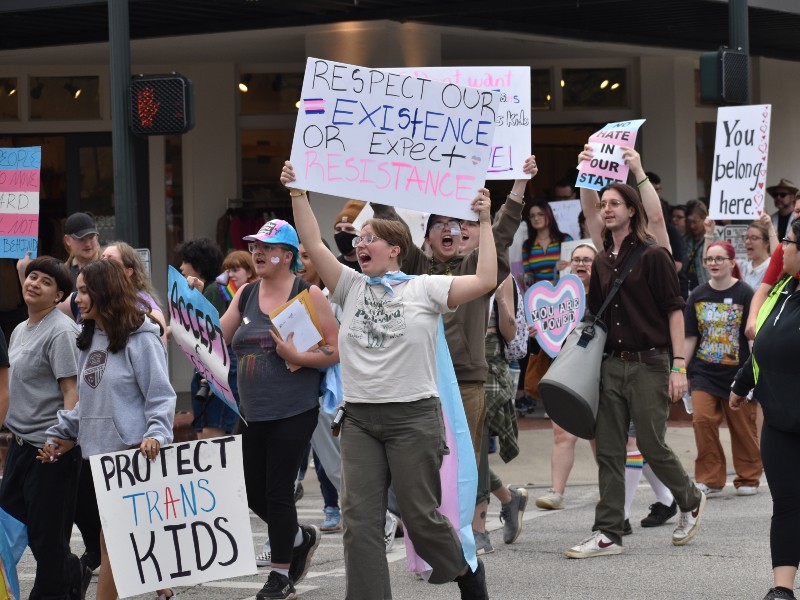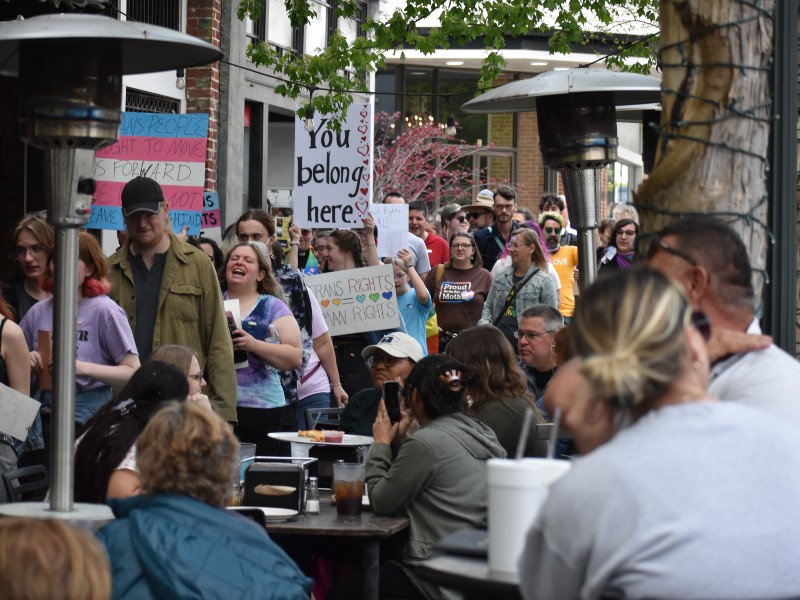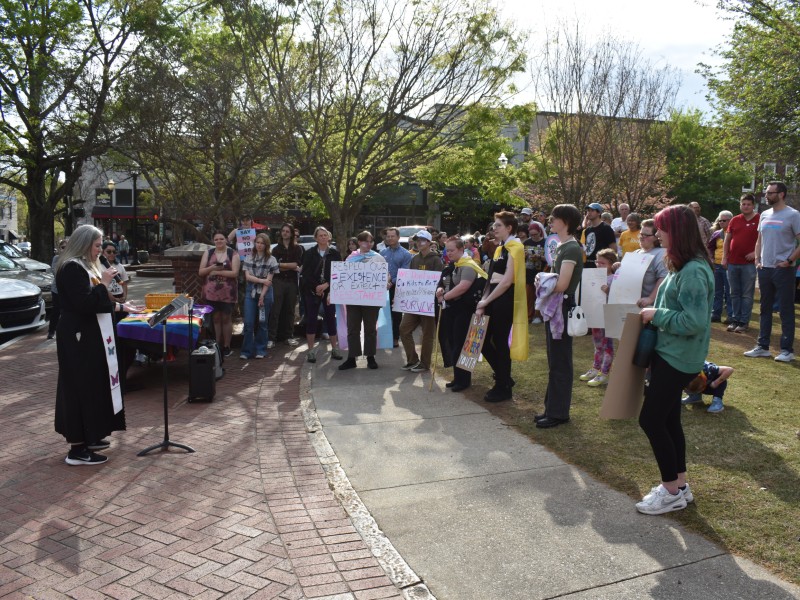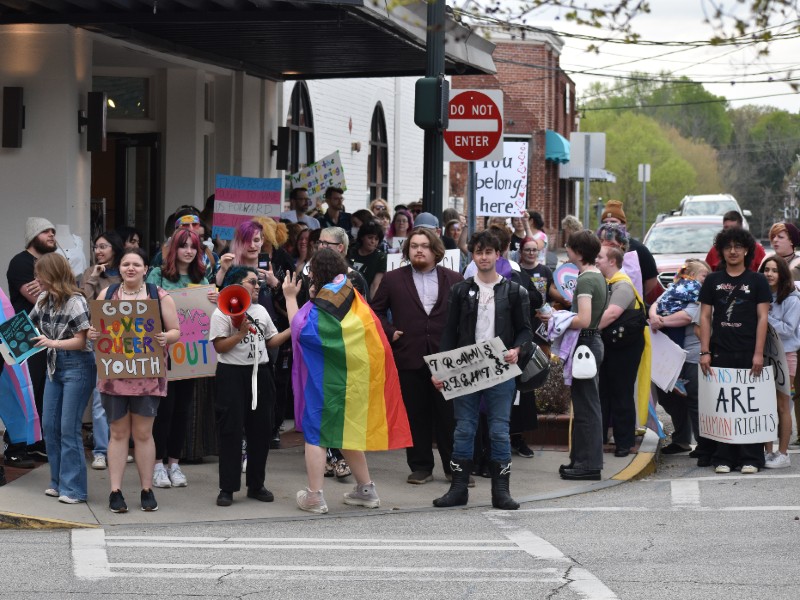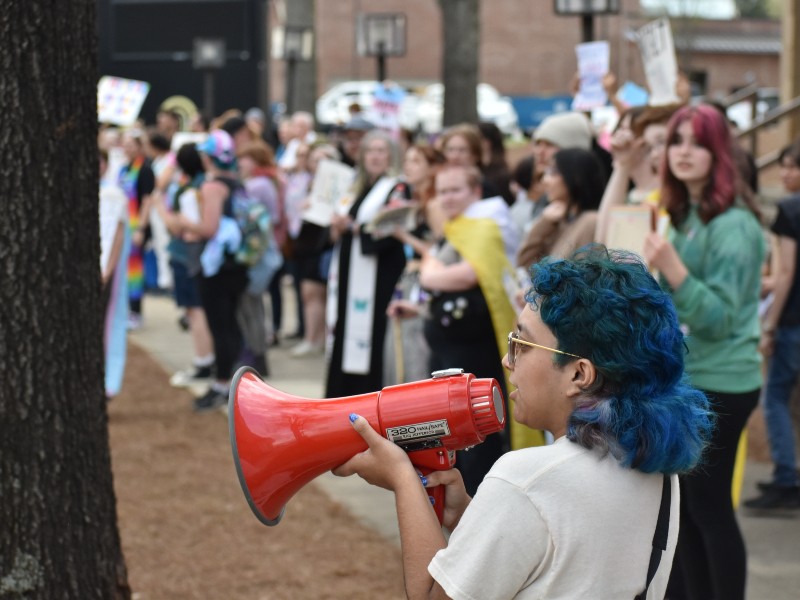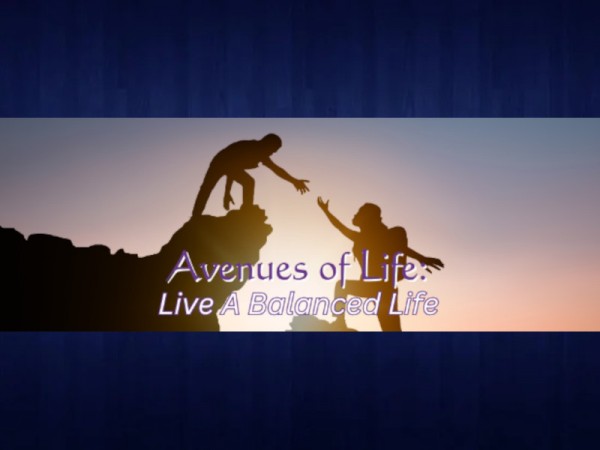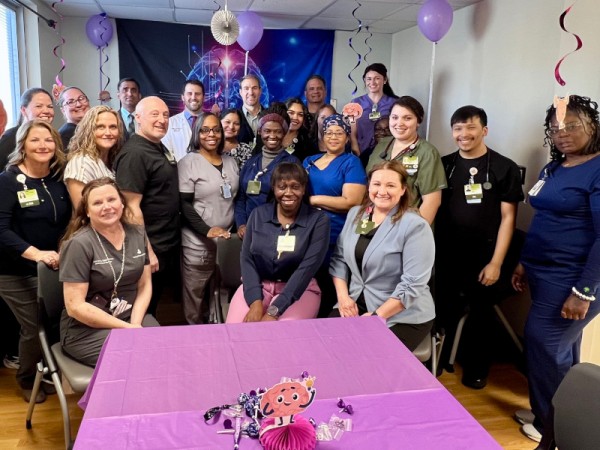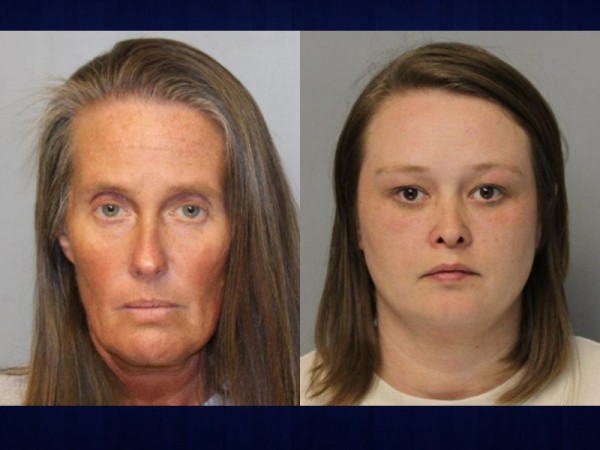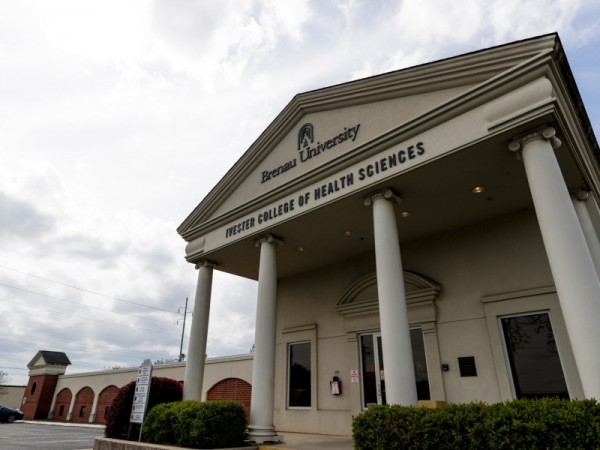Advocates for transgender rights gathered Friday evening on the square in Gainesville in protest of the recently passed ban on gender-affirming care for trans youth in Georgia.
Over 100 transgender youth, adults and advocates convened on the southern edge of the square in Gainesville as protest signs were written and stories were traded. Following the passage of Senate Bill 140 during this year’s legislative session, many transgender people reported being outraged and upset.
SB 140 was signed into law March 23 by Governor Brian Kemp, sparking reactions on social media and protests in various cities across Georgia. The bill bans most gender-affirming care for transgender youth under the age of 18—specifically outlawing hormone replacement therapies and sex reassignment surgeries.
Friday was International Transgender Day of Visibility. Matèo Penado was the organizer of the protest and said it’s been challenging to see the impact SB 140 is having on local youth.
“It's one thing to be fighting against this legislation on an advocate or lobbying kind of level, it's another thing to then see and have high schoolers reach out to you worried and anxious about what that means for them and their other trans siblings and friends,” Penado said. “It made me think of how I had to go through that. And that's not anything anybody should ever have to go through, they should be affirmed, given the care that they deserve and need—medical, social, mental. And they shouldn't have to go and commute to Atlanta to find community or care.”
During the keynote speaking portion of the event, several transgender minors took to the mic and shared their experience with the crowd, detailing pushback they’ve gotten from family, friends and members of their community.
SB 140 notes several reasons for its implementation, starting with the proposal that for a majority of transgender youth who feel a dysphoric connection to their biological sex, that feeling fails to persist into adulthood. Reverend Dallas Thompson was the primary speaker at Friday’s march and said the percentage of people who regret their transition is small.
“The research that I have seen shows there's very little regret in transitioning,” Thompson said. “And that there's such a benefit to at the onset of puberty, to have access to hormone treatment, whatever that looks like. And these things are reversible, right? These things are not permanent. And so if it keeps them feeling safe in their bodies, if it keeps them feeling safe in this world, I don't understand why we would limit that. If it keeps them feeling safe enough to not think about suicide. I can't imagine why our representatives, who are maybe parents who say they want to help kids, wouldn't want to keep them alive.”
Another touchpoint in the bill outlines a different approach to care for transgender minors, stating, “Under the principle of ‘do no harm,’ taking a wait-and-see approach to minors with gender dysphoria, providing counseling, and allowing the child time to mature and develop his or her own identity is preferable to causing the child permanent physical damage.”
Thompson said while that approach makes sense initially, the core of the issue runs deeper, citing a concern for governmental restriction on bodily freedom.
“There are a lot of things that can be done at 17, that can be done at 18,” Thompson said. “Depends on the maturity of the child, depends on a lot of other factors, and that they're not just out here, willy nilly offering these procedures, they're really working with families and the children and that if the children and the families and the doctor all work together, I don't understand why we would oppose. It's not like it's happening to 12-year-olds, we're not scooping up our seven-year-olds and giving them these procedures.”
Thompson went on to note that she sees these transitional procedures happening primarily to kids who are on the cusp of adulthood already.
“What they're looking at is children that are 17, that are very close to that age, but it may have a benefit for doing it sooner rather than later,” Thompson said.
Protesters attended for several reasons, with a recurring theme being the desire to be seen and heard by their fellow trans community members, as well as the Gainesville public on the whole.
Marissa, 25, joined the crowd Friday for two reasons.
“I think it's really important that everybody who can right now show solidarity and show publicly for folks who might not be able to, that there's a community that will welcome and accept and uplift queer and trans people, especially, trans kids,” Marissa said. “And also, just for folks who live in this community, just to show that we are here, we live here, too. And we're your neighbors, we're normal humans, and we deserve the same rights as you do. And we deserve to have safe, healthy lives without having our rights and our access to health care threatened.”
Several in attendance were surprised to see the number of people who showed up to protest. With over 100 people participating, it was said by many that this event was “unprecedented” for Gainesville.
“All the organizers that I would try and seek guidance from or get help from have all said, “This is the first time [event] that I've ever seen.’” Penado said. “And I've had people from ages 50 to 28 to 30 be like this is the first time I've seen something like this in Gainesville.”
After protesters heard from keynote speakers, shared printed materials that detailed different trans services in the area and finished up posters and signs, the crowd marched around the outside of the square. They then headed south to Jesse Jewell Parkway where they picketed near Brenau University.


